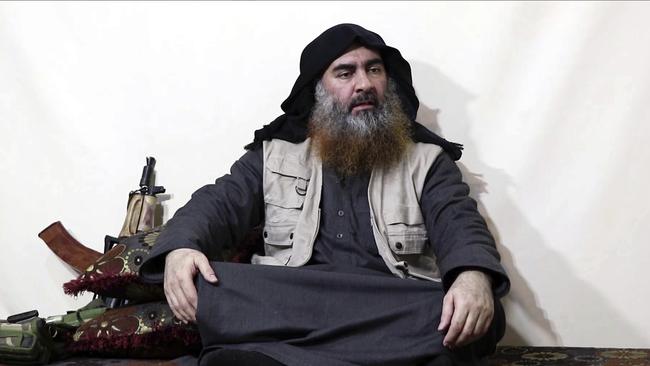Death of ISIS leader a triumph, but savage ideology outlasts him
The death of Islamic State leader Abu Bakr Al-Baghdadi is a severe blow to ISIS.

Psycho-drama and morale are important to terrorist outfits such as ISIS and al-Qa’ida and, any way you look at it, the US success in this operation damages Islamist morale.
Donald Trump, like Barack Obama, is very cautious about unleashing conventional US combat in big formations, but also like Obama, he is extremely deadly to individual enemies of the US.
This victory is also important to Trump himself.
As his former adviser Steve Bannon has argued, the Democrats, for the moment at least, have been pretty effective in hurting Trump politically with their impeachment campaign. His approval ratings are well down.
But killing the terrorist leader is an act that every voter can understand. Trump’s base will love it and he will crow about it all the way to the election.
Taking out Osama bin Laden in a similar operation in 2011 gave a political boost to Obama. That surge ultimately faded away in Obama’s case, but because he ran as the kumbaya candidate and president, that sort of event probably figured less as part of his political persona than it does in Trump’s America First narrative.
And Trump, for all that he sometimes seems so scattered, is a master of political strategic communication. Rest assured that come the 2020 election no American voter will be in any doubt about who authorised the killing of the ISIS leader.
The effect of the event in the broader Middle East is less clear.
Baghdadi had taken brutality and savagery in modern terrorism to a new level, beyond even al-Qa’ida. He not only specialised in beheadings and brutal, sadistic executions, he championed sex slavery as a traditional part of Islamic values.
Muslims around the world obviously reject this, but ISIS inspired big numbers of volunteers in disaffected Sunni areas.
The years since the 9/11 attacks have overall been pretty good for the terrorists.
They have failed in two fundamental objectives. They have not perpetrated another mass-casualty attack against the US or any Western target on the scale of the 9/11 attacks.
And they have failed to take control of a national government in the Middle East.
In the latter objective they have come very close. The Muslim Brotherhood briefly controlled Egypt and while the brotherhood is certainly not ISIS, they come from the same wellspring of Islamist extremism.
ISIS itself for a time set up its own state and an affiliate briefly did the same in the southern Philippines. These efforts look unsustainable because in the end big powers in alliance with neighbouring states will not tolerate a terrorist-controlled de facto state.
However, the achievements of the terrorists since 9/11 are very substantial. ISIS now has more than 20,000 fighters still in the field. Al-Qa’ida has quietly rebuilt itself. ISIS has active, violent, powerful affiliates in much of Africa, in Pakistan and Afghanistan, in The Philippines. A strategic alliance between ISIS and al-Qa’ida cannot be ruled out.
Using the internet, ISIS has reached into living rooms and bedrooms in France and Boston, in Spain and Sydney and Melbourne, in London and Brussels, and radicalised young men to the point where they will kill themselves and innocent people in the service of its ideology.
In Afghanistan, after nearly two decades of Western intervention, the terrorists are as strong as they have been at any point since the Taliban was first dislodged.
There are now hundreds of thousands of people around the world who support Islamist terror. That was not the case before 9/11.
Part of the problem is the Sunni/Shia split in the Middle East. There will always be discontent among the Sunni populations of states dominated by a Shia political class as in Iraq and Syria (counting the Alawites as a branch of Shia).
ISIS, and before it al-Qa’ida, has been successful in giving that Sunni discontent an Islamist expression, just as the Taliban has done with the southern Pashtuns in Afghanistan.
That is why while military efforts are necessary, there needs to be a way to find local rapprochements with these big population bases.
Nonetheless, the death of Baghdadi is a big victory for Trump, and for counter-terrorism, but the terrorists themselves are by no means defeated.




The death of Islamic State leader Abu Bakr Al-Baghdadi is a severe blow to ISIS. It shows to the whole world that ISIS cannot provide security for anyone, that its caliph does not enjoy divine or even human protection, and that it is presently on the run in Syria and Iraq.